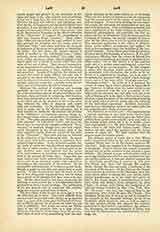

Laverdiere, CHARLES-HONORS, French-Canadian historian, b. at Chateau-Richer, Province of Quebec, 1826; d. at Quebec, 1873. After his ordination (1851) he was attached to the Quebec Seminary, where he had studied the classics and theology, and he remained there till his death. He utilized his varied talents in teaching belles-lettres, physics, chemistry, mathematics, music, and drawing. His favorite pursuits were Canadian history and archaeology. Although his original writings were few, including a school history of Canada and some historical pamphlets, he supervised the reediting of several most important works, which are the very sources of Canadian history. Conspicuous among these are the “Relations des Jesuites” (1858), with erudite and exhaustive analytical tables; the “Journal des Jesuites” (1871); and finally, the realization of his most ardent wish, “Les Oeuvres de Champlain” of which he wrote the introduction and countless annotations of great historical exactness and value. He often spent a day in verifying a single date or the spelling of a name. When the recently completed edition was entirely destroyed by fire, Laverdiere calmly remarked that some misprints that had escaped his vigilance might be avoided in a new edition. His thorough knowledge of plainsong enabled him to publish a series of liturgical works. He was of a mild and amiable character, esteemed by all who knew him. His mastery of Canadian history, especially the period from 1500 to 1700, gave his assertions great authority.
LIONEL LINDSAY

